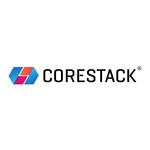FinTech Futures Jobs: These four things are what employees want this year
From the Foo Fighters playing at Salesforce’s annual Dreamforce employee conference in 2021 to Cardi B banking a million dollars for a corporate event – “Last night performing for the best bank in America,” she wrote in a now-deleted tweet – private concerts with huge global stars are just some of the perks that tech and banking workers have come to expect.
But that was then, and this is now. Cost-cutting measures along with layoffs have resulted in a slew of perks and benefits being cut across a huge number of companies.
Meta has cut back on free meals and cleaning services, while Salesforce has discontinued a monthly paid day off for employees’ mental health. The company has also cut ties with a 75-acre location in California which it had named Trailblazer Ranch, designed as a wellness retreat for staff.
Twilio has eliminated a benefit which had given employees an allowance to spend on wellness and books, and Google has made cut-backs around food, travel, and social events.
Best benefits for 2023
Many UK workers are now on the lookout for different kinds of perks and benefits as the cost-of-living crisis and rising interest rates bite into salaries. Sure, endless free coffees and snacks are nice, but more tangible perks matter in 2023.
A recent report from Bionic surveyed 1,000 employees across the UK to find out which benefits they felt their employers should be offering them. 51.4% said they value flexible working, with 27.6% valuing private healthcare. Another 23.7% want a performance bonus.
Other wants and needs are emerging too. According to Workday’s new employee experience report, four trends have stood out this year.
1. Health and wellbeing
Burnout, rust-out, and the great resignation: all these pandemic-era trends were essentially about one thing––employee exhaustion and disengagement.
A survey from LumApps found that 88% of UK employees have experienced at least some level of burnout over the last two years, with one-third claiming to suffer from physical and mental exhaustion frequently.
What employees want is support through programmes to help with mental health and wellbeing, and to be heard by their leadership.
2. Hybrid work
As many companies and organisations transition back to the office post-pandemic, a scenario where staff work some days at home and some days in the office has emerged as the frontrunner for the way we work now.
Workday’s figures show that while 87% of workers feel productive in a hybrid work environment—mirrored by an increase in meetings and hours worked—an almost equal percentage of leaders (85%) say that hybrid work has made it challenging to have confidence in employee productivity.
The solution lies in a recalibration of expectations. Objectives and key results (OKRs) can be a more effective way to set goals and put milestones in place for the outcomes you want to accomplish––regardless of whether you’re in the office or not.
3. Growth and recognition
Quiet quitting, for many workers, is an expression of boredom and lack of interest in the work they are doing. Without clear paths to progression or upskilling––more vital than ever in an AI-infused future––what employees really value, far more than pinball machines and free dry cleaning, is a commitment from their bosses to progress their careers in a meaningful way.
From internal mobility opportunities to education opportunities and regular 1-2-1s, there are many ways for employees to progress.
4. Strategy
As well as opportunities to grow, what workers also want, especially in a time of economic turbulence, is to know that the companies and organisations they are working for have a clear eye on the future. Employees want reassurance that strategic goals are in place so that they can make sure their work focuses on high-value initiatives.
Do you feel like your current workplace is letting you down when it comes to the above? Then a job move could be the answer, and the FinTech Futures Job Board is the perfect place to start your search.
Senior Data Scientist – Chat Advisor, Cleo, London
Cleo is hiring a Senior Data Scientist to actively build and produce classifiers, implement and utilise GPT, further develop its personalised AI assistant, and find opportunities for model and product improvements in Cleo’s extensive datasets of chat conversations, spending patterns, and app interactions.
Software Engineer, FIS Global, London
As a Software Engineer at FIS, you will be responsible for designing, developing, and maintaining software applications that operate on both the front-end and back-end of a web or mobile application, working with a team of developers, designers, and stakeholders. This role provides a fantastic opportunity to lead the platform journey at FIS.
Build Systems Engineer, Starling Bank, Cardiff
As a Build Systems Engineer, you’ll be responsible for identifying and implementing performance, stability, and productivity improvements in build and CI systems to help engineers to deliver reliable software faster. You’ll have knowledge of CI and build tools, possess a strong foundation in Java, plus you will need experience in Kotlin and scripting languages such as Python or Bash.
For hundreds more opportunities across fintech, visit the FinTech Futures Job Board today.












































